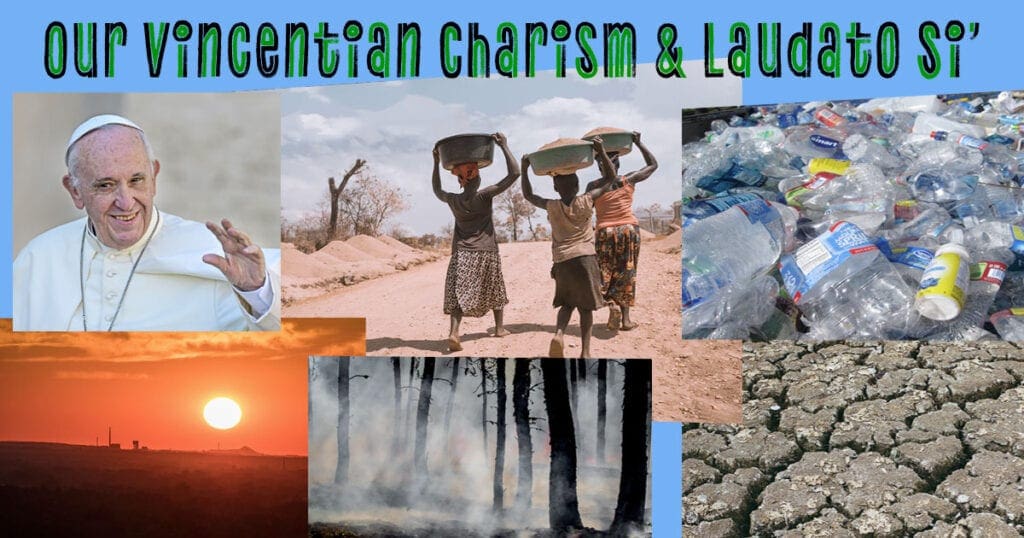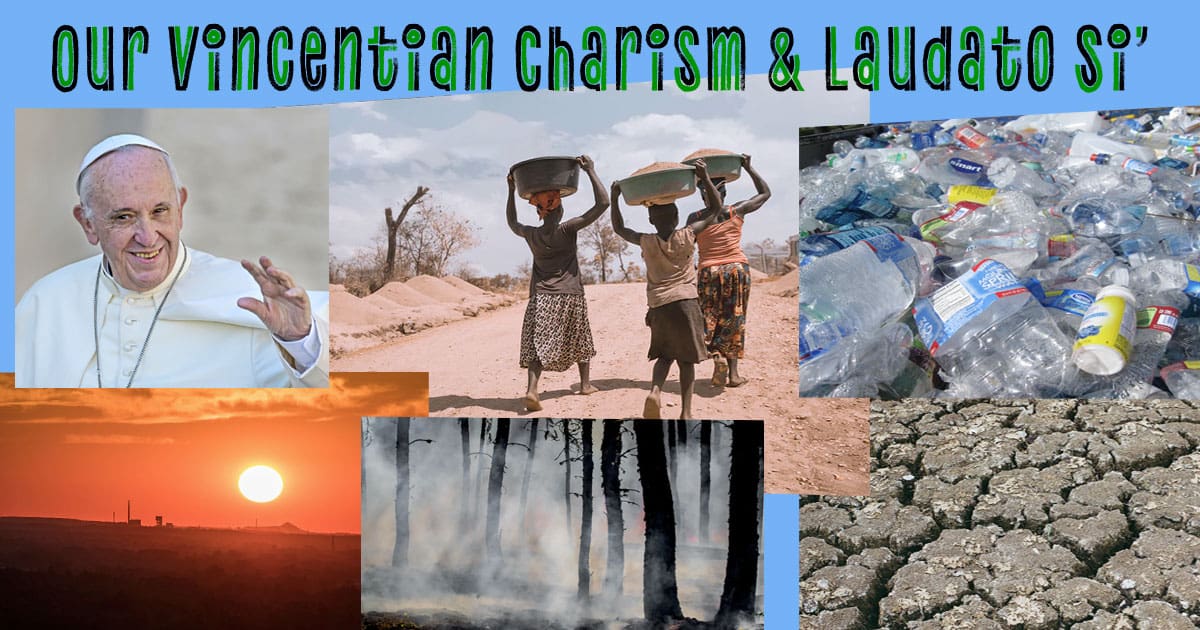Called to Ecological Conversion
One of the themes threaded throughout Laudato Si’ is the need for an ecological conversion. Pope Francis uses the phrase “global ecological conversion” from the late John Paul II as he challenges us repeatedly to look at those things we revere as “sacred cows” in our lives and culture and evaluate them with new eyes; with eyes that are open to the devastation our actions are causing to planet earth, our home.

Recognizing the role that education can play in conversion he states: “Environmental education has broadened its goals. Whereas in the beginning it was mainly centered on scientific information, consciousness-raising and the prevention of environmental risks, it tends now to include a critique of the “myths” of modernity (our sacred cows) grounded in a utilitarian mindset (individualism, unlimited progress, competition, consumerism, and the unregulated market. (210)
A quote from the late General Omar Bradley reflects so clearly the times in which we live: “We are stumbling blindly through a spiritual darkness while toying with the precarious secrets of life and death. The world has achieved brilliance without wisdom, power without conscience. Ours is a world of nuclear giants and ethical infants. We know more about war than we know about peace, more about killing than living.” The ecological conversion of which Francis speaks calls us to recognize the spiritual darkness in which we are currently living and embrace a change of heart. He quotes from the Australian bishops: “To achieve such reconciliation (with creation), we must examine our lives and acknowledge the ways in which we have harmed God’s creation through our actions and our failure to act. We need to experience a conversion, a change of heart.”
“Many things have to change course,” he tells us,“ but it is we human beings above all who need to change. We lack an awareness of our common origin, of our mutual belonging, and of a future to be shared with everyone. This basic awareness would enable the development of new convictions, attitudes and forms of life. A great cultural, spiritual and educational challenge stands before us, and it will demand that we set out on the long path of renewal.” (202)
Intellectually it requires that we let go of our anthropocentric view of the world to a theocentric one. This wider view would create space for all species and return to each the rights given to them by the Creator. Emotionally it requires that we let go of seeing the human species as the epitome of creation and recognize that we are but a single branch on the cosmic tree of life. Ethically it requires that we recognize that all of creation is integrally connected and, in God’s eyes, each element has its own intrinsic value.
In the words of theologian Elizabeth Johnson, “Ecological conversion means falling in love with the earth, an inherently valuable, living community in which we participate, and bending every effort to be creatively faithful to its well-being, in tune with God who loves it unconditionally.”
This is the challenge that Francis places before us: See all of creation through God’s eyes; love all of creation as God loves creation; and allow conversion to be an integral and ongoing part of our daily lives.
The Vincentian Charism and Laudato Si’ is our effort to share various ways that Vincentians find their charism connects with Laudato Si’. We encourage your comments on these posts and welcome anyone interested in submitting an article to email Jim Paddon at jpssvp@hotmail.ca.







0 Comments